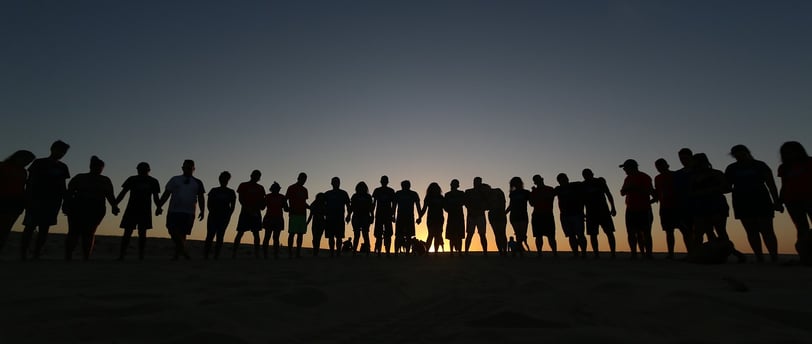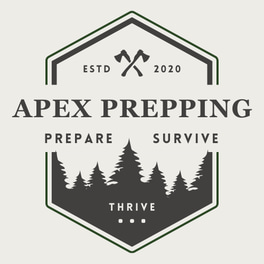Building Resilient Communities
Teach, Don't Preach


In a world where uncertainties seem to be on the rise, it's crucial that we come together as a community to ensure our collective well-being and resilience. One powerful way to do this is by sharing our preparedness knowledge with friends and neighbors. Instead of preaching about the importance of being prepared, let's take on the role of educators and mentors, guiding those around us to become self-reliant in times of crisis. Together, we can build resilient communities that thrive in the face of adversity. This is the essence of the #PrepTogether movement.
Why Preparedness Matters
Before delving into how we can teach preparedness effectively, let's understand why it matters so much. Preparedness isn't just about stockpiling supplies for doomsday scenarios. It's about being ready for any unexpected event, whether it's a natural disaster, a power outage, or even a personal health crisis. When individuals and communities are prepared, they are better equipped to respond to these challenges, reducing the impact and recovery time.
Teach, Don't Preach
The phrase "Teach, Don't Preach" embodies the idea that we should share our knowledge in a way that is informative, respectful, and non-judgmental. Instead of forcing our beliefs or emergency plans onto others, we can gently offer our expertise and resources, making preparedness a collaborative effort.
Here are some effective ways to teach preparedness:
Start Conversations: Engage in open, honest conversations with your friends and neighbors. Ask them about their concerns and what they're already doing to prepare. This creates a safe space for discussions and sharing.
Share Resources: Offer to share your preparedness resources, such as checklists, guides, or even spare supplies. Sometimes, a simple gesture can inspire others to take action.
Offer Guidance: Provide guidance on how to create emergency plans, assemble emergency kits, and develop communication strategies. You can even organize workshops or training sessions for your community.
Lead by Example: Practice what you preach by demonstrating your own preparedness efforts. When others see your commitment, they may be more inclined to follow suit.
Collaborate: Encourage collaboration among neighbors. Together, you can pool resources, share responsibilities, and build a stronger support network.
The Power of Prepared Communities
Prepared communities are more resilient communities. They can respond swiftly and effectively to crises, reducing the burden on emergency services. Moreover, a sense of unity and trust is cultivated among neighbors when they work together to prepare. This can lead to stronger bonds and a greater sense of security, even in the face of adversity.
So, let's remember the importance of "Teach, Don't Preach" when it comes to preparedness. By sharing our knowledge and fostering a sense of community, we can empower each other to become self-reliant and resilient. Together, we can navigate the uncertainties of life and emerge stronger, more prepared, and better connected than ever before. Join the #PrepTogether movement and be a beacon of preparedness in your community.
